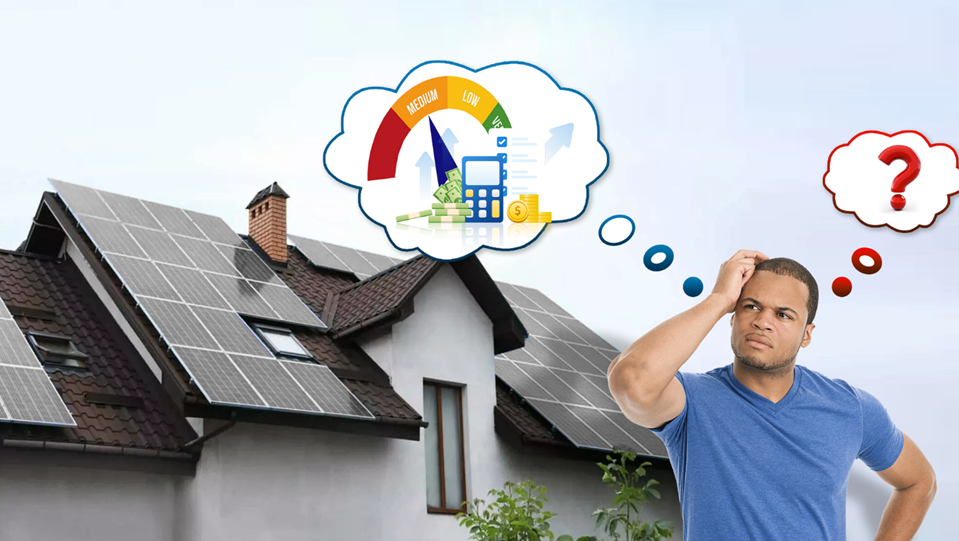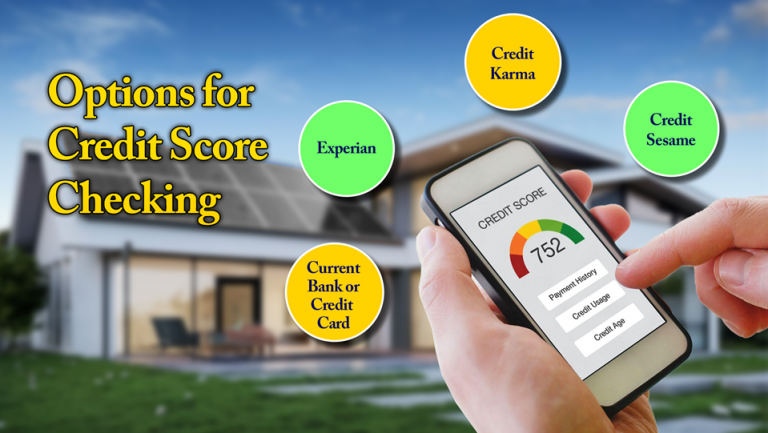- Published On:
Can You Go Solar With a Low Credit Score?
Many U.S. homeowners want to go solar but are worried about their low credit scores. The good news is that bad credit scores are no longer a barrier to switching to solar energy. There are flexible solar financing options and special programs to support low credit scores. Installing solar panels at home is easier than you think with low credits now.

In this article, we will explore the opportunities and explain how you can overcome credit score challenges to enjoy the savings and benefits of solar energy.
What is a low credit score?
Before exploring the ways to get a solar panel installation with low credit, you need to understand what low credit means. A person who has low ratings is considered to have bad credit. Some of the illustrations of bad credit ratings include late loan EMI payments, delinquencies, bankruptcies, and other credit calamities. Due to poor credit, it becomes almost impossible to obtain credit cards, loans, and other credit facilities.
Also, being a credit risk means that a person is a risk to lenders and other financial institutions. Besides, you will charge higher interest rates for a bad credit score, and you have to pay a higher down payment to access the financing.
When it comes to solar, most solar loans normally require a minimum credit score of 650, while some lenders will accept scores as low as 600. This is useful if you want to finance the installation of solar panels.
How to get free access to your credit report?
Knowing your credit score will help you easily figure out which of the solar loans you stand a chance at getting. It’s always a wise move to check whether the credit report is error-free, in case you are interested in going solar.
If you are a resident of the United States, all three credit reporting agencies, including Equifax, Experian, and TransUnion, provide you with a free credit report annually. But remember, any website that demands your credit card information before you access your credit report is not a trusted site. Also, do not be deceived by the word free trial because you will be required to pay a monthly fee if you do not reconsider canceling the subscription. Do not provide information about oneself where the site is not reliable.
How to check your credit score?
To obtain your credit score for free, consider these options:
Current Bank or Credit Card: You can check your credit scores and tracking by the banks and credit cards free of charge.
Experian: It offers a free FICO score as part of its consumer benefits. They also provide other paid services in credit monitoring.
Credit Karma: This app and website offer free Vantage Score 3.0 credits from Equifax and TransUnion.
Credit Sesame: Offers free TransUnion credit score on its website.
Remember that different credit scoring methods are in use, so the credit score your lender uses may not be the same as your own. The most commonly used score is the FICO Score, but even if you have free access to another score, you can usually see the basic score range (bad, good, and exceptional), which is often equivalent across scores.

Which type of solar loans for low credits are available?
As more people go solar due to the benefits and low costs, more flexible financing opportunities are available. If your credit score is not so good, you can apply for a loan on the value of the house by taking a home equity loan or a home equity line of credit. Also, credit union loans are often cheaper in terms of interest rates and overall loan costs.
Green Banks: Green banks offer another way of financing renewable energy projects to customers and business owners. They usually provide financing options with little or no down payment, longer loan terms, and reduced interest rates. Some of the other major green banks include:
- Colorado Clean Energy Fund
- DC Green Bank (Washington, D.C.)
- Energize Delaware
- Maryland Clean Energy Center
- North Carolina Clean Energy Fund
- Philadelphia Green Capital Corporation (Pennsylvania)
Other Loan Options: You also need to be aware of other options. If you have a local bank that you regularly work with, you can always start by asking them about financing options. They can be less demanding or offer easier terms for further loans if you have a history of on-time payments or credit with them.
How to improve your credit score?
Making the necessary changes in your credit score will enable you to get approval for financing and at the same time pay lower levels of interest thus making the use of solar energy cheaper. Here are a few cost-effective or free ways to boost your credit
Talk to a Non-Profit Credit Counselor: NFCC assists people in understanding the situation with credit, creating a plan to deal with it, and coming out in a ‘new’ skin after bankruptcy. The credit counselors provide free consultation services in all 50 states of the U. S. They also offer relatively low-charge financial planning services and multiple free information resources available on the internet.
Keep Track of Your Credit: You can find a mobile application that is free and offers to explore your credit score and the factors that affect it, for example, Experian or Credit Karma. These tools offer recommendations and specific activities that the consumer can take to minimize loans and consistently pay their dues on time as well as improve their credit. There is an Experian service “Boost” that not only adds rent, utility, and mobile phone payments to credit reports but can raise your credit score.
Make a Plan: Your credit score is affected by a few factors: payment history, balances outstanding or credit utilization, and credit history. If you want to grow better at any of these, here are some ideas for where to start:
Payment History: Pay bills on time. Set reminders and communicate with creditors if you foresee payment issues.
Credit Usage: Reduce high credit card balances. Create a budget to allocate spare money toward paying down debt.
Credit History: Create a good credit history by establishing secured credit cards, which are more easily obtained and require a deposit.
How to find the best solar loan for a low credit score?
Your financial position and place of residence will determine which solar loan option is best for you. The easiest approach to find out what’s available is to inquire about different solar loan choices. Verify any fees associated with solar loans by asking questions, looking for reviews to be sure your loan company has a good reputation, and verifying the specifics of your loan’s payments over time. It’s a wonderful idea to work with a reputable solar installer like Solar SME to make sure you’re happy with your choice.
While having a low credit score can make it more challenging to go solar, it’s not impossible. Various financing options, including solar leases, government programs, credit union loans, secured loans, and no-credit-check solar companies, can help make solar energy accessible to homeowners with lower credit scores. Additionally, taking steps to improve your credit score can increase your chances of securing favorable financing terms in the future.
Solar SME is a top-rated NABCAP-certified solar provider near you. Our solar experts will assist you with the best solutions for going solar, even with a low credit score. You can book a Free Appointment with us!
Related Articles:
30% federal tax credit is expiring in 2025. But if you missed out on it, you can still access solar power with Solar Lease/PPA financing. This option is an opportunity to get all the advantages of solar power while making no large initial investments. Explore More!
While considering major factors before switching to solar, like cost, financing etc, it is pivotal to analyze, "Is my roof good for solar? it is pivotal to analyze, "Is my roof good for solar? and guide you on all solar roofing factors!
It may require an upfront cost to install solar panels, however, there are various solar financing options. Explore the best option . between solar lease vs buy and make an informed choice.



